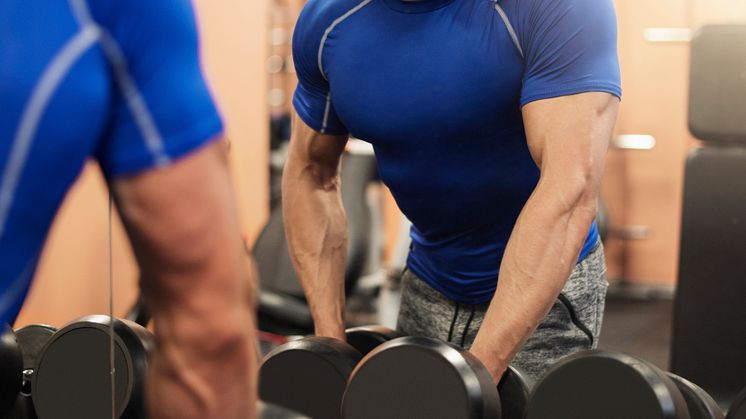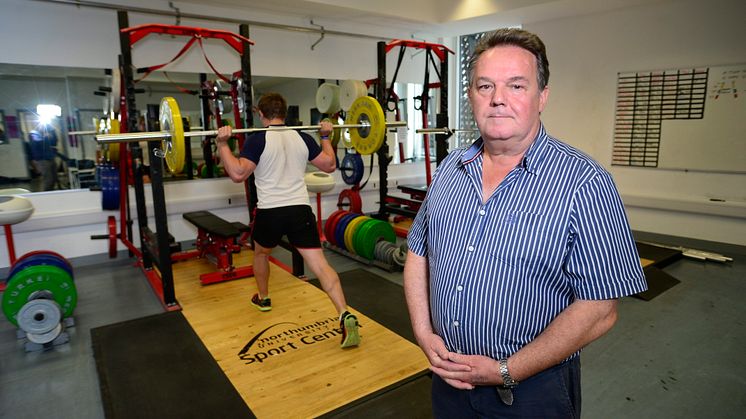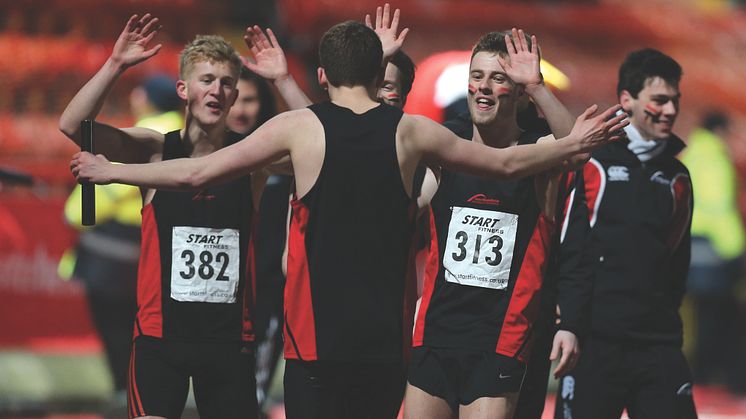Press release -
EXPERT COMMENT: Athletes, you’re doing weight training all wrong
Glyn Howatson, Professor of Human & Applied Physiology at Northumbria, along with Angus Hunter, Reader in Exercise Physiology and Lee Hamilton, Lecturer in Sport, Health and Exercise Science at the University of Stirling, writes about weight training for The Conversation.
To become stronger and develop more muscle, you must lift heavier weights over relatively few repetitions. At least, that has been the received wisdom among professional athletes. However, a new body of evidence suggests that it may be wrong.
Researchers at McMaster University in Canada found that the weight of your weights doesn’t matter, as long as you continue lifting to the point of exhaustion.
For their study, they recruited 49 healthy young men and randomly allocated them to one of two groups. Over a 12-week period, one group lifted lighter weights over high repetitions while the other lifted heavier weights over lower repetitions. Both groups were instructed to continue these lifts to the point of exhaustion.
The researchers took muscle samples and found gains in muscle mass and muscle fibre size were almost identical between the two groups. They concluded that as both groups lifted to exhaustion most of the muscle fibres would have been activated (neuromuscular recruitment) and this is what caused equal strength gains.
These findings are important for athletic performance as many track and field athletes need to develop power to run faster or throw further. As power is a combination of muscle strength and contraction speed, both of these aspects need to be developed to get the best performance improvement. The former is mostly addressed in the gym, and the latter is achieved by generating force as quickly as possible on the sports field or the gym. So, lighter weights allow for faster contractions and are thus a better strategy than lifting heavier weights more slowly.
Traditional techniques of strength training can be a problem for athletes because of something called force-velocity relationship whereby heavier weights can only be lifted slowly whereas lighter weights can be lifted much more quickly. So when an athlete trains their muscles for strength they are inadvertently training them to contract more slowly. This is an issue because optimal athletic performance often needs fast muscle contraction or power.
The McMaster study is important because it means that athletes can become stronger by lifting weights at speeds similar to those used in track or field performance. This theory has been discussed recently by the authors in an article examining the effect of different training regimes on single muscle fibres. The muscle fibres of power lifters, although smaller, contracted with more force, relative to muscle size than those of body builders. This result probably occurred as result of differing velocities when the two groups performed their training lifts.
Given that the extent of neuromuscular recruitment has been proposed as one of the key drivers for increasing strength it is important to examine this while the athletes lift the weights. We have measured muscle activation on ten international-level track and field athletes, who performed explosive Olympic-style lifts.
In one session the athletes used a heavy load (as used in traditional strength training). In another session they used light weights (as would be used for traditional power training). And, in another session, they used a moderate weight.
Power declined by the end of the final heavy weight set, whereas the athletes were able to maintain it while lifting the light and moderate weights. However, muscle activation had increased for both heavy and moderate weights when it remained the same for the light weights. So the moderate weight enabled relatively higher neuromuscular recruitment at a faster lifting speed, but without fatigue.
The timing of an athlete’s gym session for strength gains are critical as doing resistance exercise to the point of exhaustion can lead to strength decreases and increased muscle soreness that lasts for several days. An athlete arriving for a track session, following strength training, with sore muscles may not achieve the desired outcome for the session and they might increase their risk of injury.
Avoiding the fatigue effect
We then wanted to examine this fatigue effect 24 hours after the weight session in a group of ten elite track and field athletes. In this study, we used a similar Olympic-style lifting session and our results demonstrated fatigue immediately after the heavy weight session, but not after the light weight session. This means that using heavy weights is not only suboptimal for training power, but also induces fatigue, which lasts at least 24 hours.
These findings suggest that strength and conditioning coaches of elite sprint track and field athletes need to seriously consider the value of traditional strength training methods.
The McMaster study shows us that equivalent gains in strength and muscle mass can be made from lighter weights. Our work shows that there may be an advantage to power produced and muscular activation from lifting light to moderate loads. The problem is, that to achieve long-term strength and muscle gains from lifting lighter weights, the weights must be lifted to exhaustion.
Lifting to the point of exhaustion should probably be avoided for the reasons stated previously. So while it is unclear if moderate loads lifted explosively and not to exhaustion could lead to the same strength and muscle gains long-term as traditional training, what we know is that athletes don’t need to lift heavy weights all the time to achieve strength gain.
This article was originally published on The Conversation. Read the original article.
Topics
Categories
Northumbria is a research-rich, business-focused, professional university with a global reputation for academic excellence. To find out more about our courses go to www.northumbria.ac.uk
If you have a media enquiry please contact our Media and Communications team at media.communications@northumbria.ac.uk or call 0191 227 4571.










